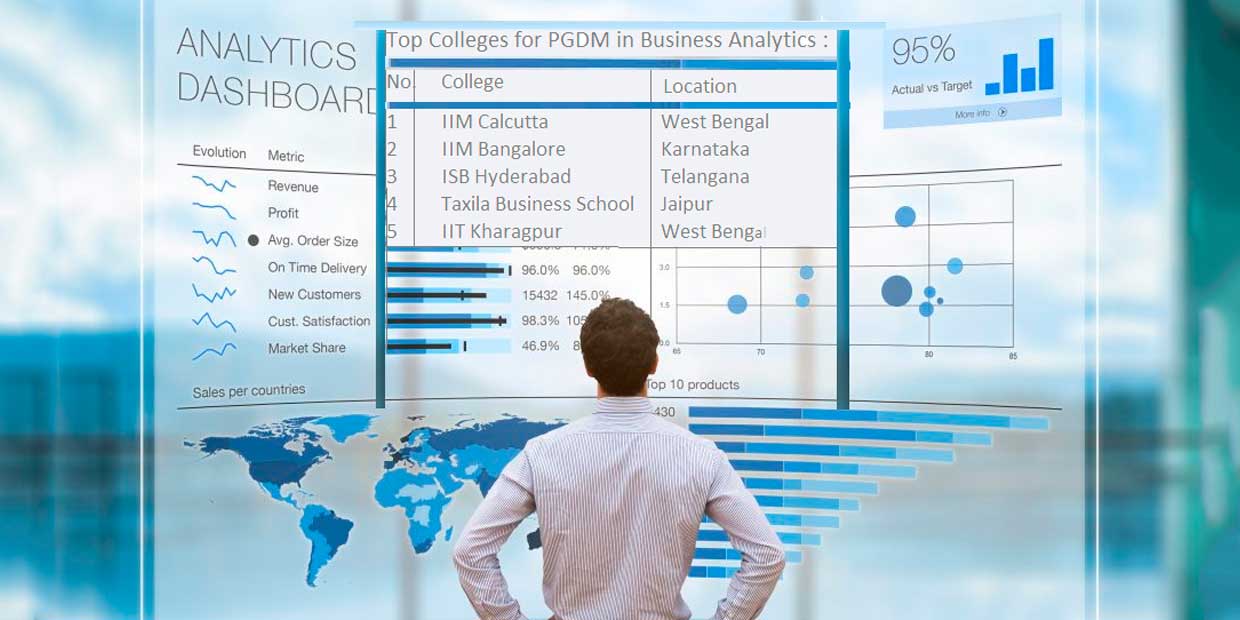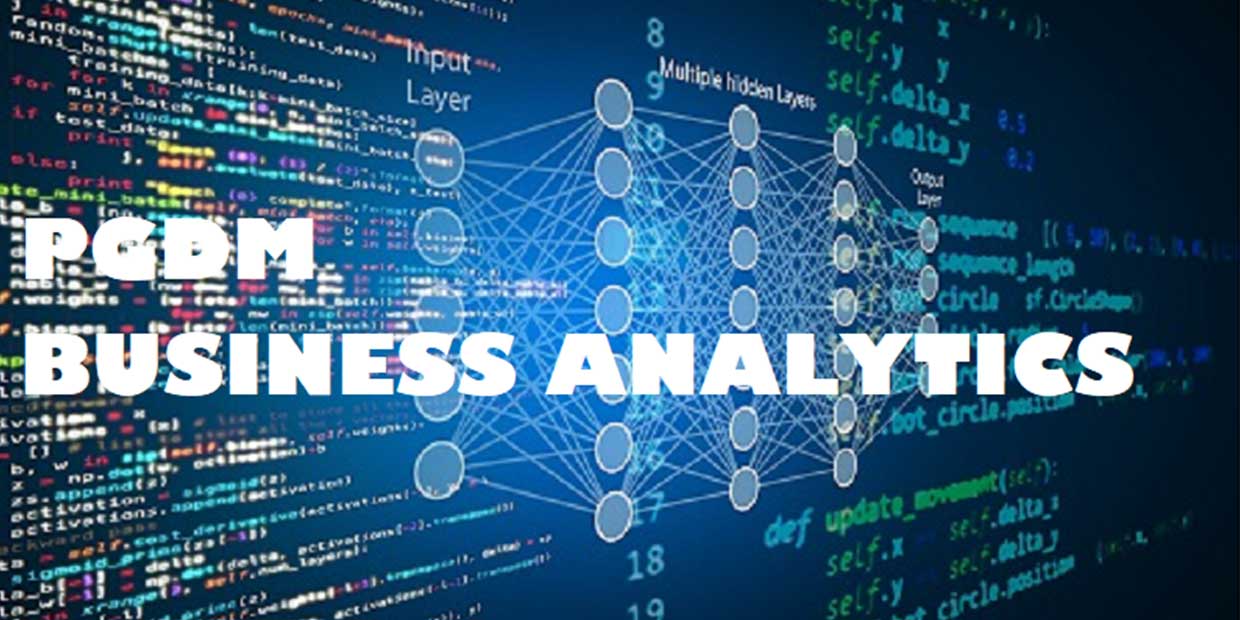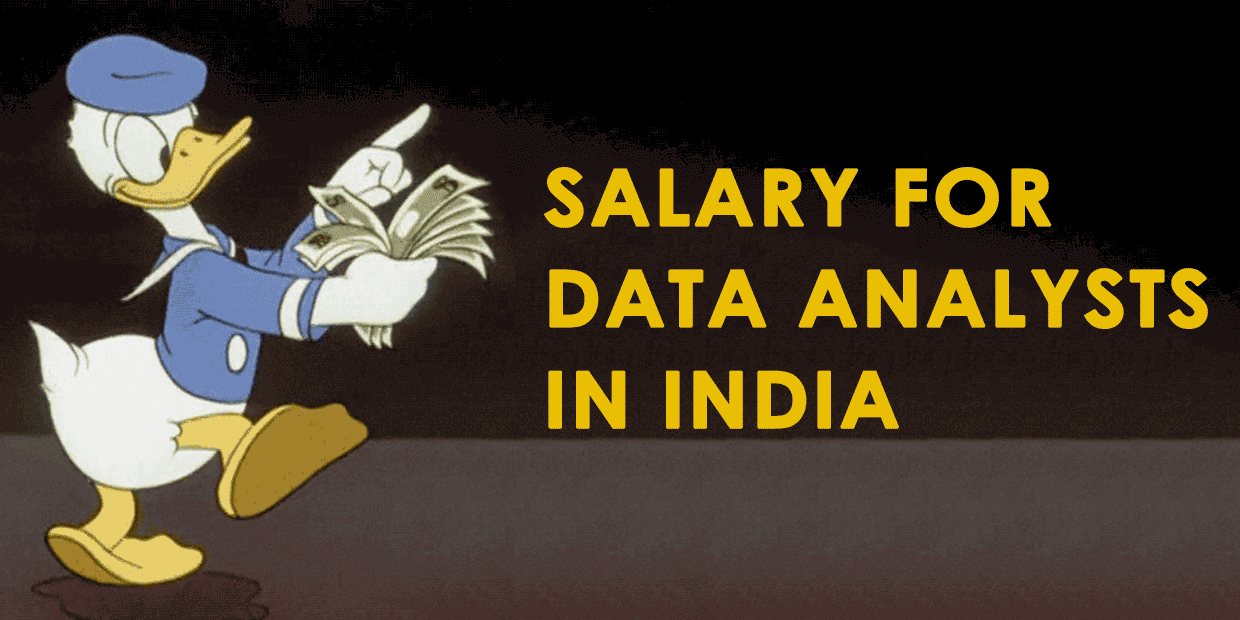
Top Colleges for MBA in Business Analytics
Every mobile app usage, Facebook posting, Credit & debit card purchase, and website visit generates data. Worldwide, we generate mind-blowing data each day: app. 3.0 quintillion bytes. All that data is a prospective goldmine for business. Companies have always sought to figure out as to who is using their services. How they make shopping decisions, and how companies can better capture their business through new products and strategies. Using business analytics, companies can reveal trends and patterns underlying their data. There are very few colleges that offer management degrees like MBA/PGDM in business analytics. For example, by categorizing customers’ age, location, and shopping history, companies can determine precisely. What products or services should be offered in order to increase sales, or what advertisements should be shown to build brand loyalty? Without any further delay, let’s have a look at the top colleges for MBA in Business Analytics.
Taxila Business School
- Highest Placement Rs 22 Lakh / PA
- Average Placement Rs 12.50 Lakh / PA
- SpecializationTriple Specialization with Business Analytics compulsory.
- Ranking 10th All India.
- RatingAAA+
Top Colleges/Institutes offering PGDM/MBA in Business Analytics in India

| No | College/Institute | Location |
|---|---|---|
| 1. | IIM Calcutta | West Bengal |
| 2. | IIM Bangalore | Karnataka |
| 3. | ISB Hyderabad | Telangana |
| 4. | Taxila Business School | Jaipur |
| 5. | IIT Kharagpur | West Bengal |
| 6. | SP Jain | Maharashtra |
| 7. | Great Lakes | Chennai |
| 8. | IBS | Hydrabad |
| 9. | SKVM’s Narsee Monjee | Mumbai |
| 10. | Prin LN Welingkar Institute of Management Development and Research | Mumbai |
| 11. | Indian Institute of Social Welfare and Business Management | Kolkata |
| 12. | GITAM Hyderabad Business School | Hydrabad |
| 13. | IFMR GSB | Andra Pradesh |
| 14. | LBSIM | New Delhi |
| 15. | CMS Business School, Jain University | Banglore |
| 16. | Chandigarh University | Chandigarh |
| 17. | PIEMR | Indore |
| 18. | ISBR | Bangalore |
| 19. | IISWBM | Kolkata |
| 20. | NIRMA University | Ahmedabad |
Businesses such as financial services, retail, manufacturing, healthcare, energy, oil and gas, telecom, social media, sports, gaming, e-governance, and e-commerce offer sufficient employment possibilities for students.
Few of the well-known companies hiring PGDM Business Analytics are Accenture, HP, IBM, Cognizant, Tata Consultancy Services, American Express, JPMorgan, Accenture, Microsoft, Adobe, Flipkart, AIG, Ernst & Young, Wipro, Vodafone & Deloitte are the organizations that have the big number of openings for data analysts every year.
These days, companies have huge volumes of data to work with. Today’s digital purchases are tracked right down to the penny and the second. The data (both structured and unstructured) that businesses collect every day is called “Big Data”, and it’s a corporate asset as a company’s equipment. But gathering the raw data is not only sufficient. Another major thing is to analyze it in order to generate actionable information. That’s where business analytics has a role.
Business analytics requires some skills, like technical skills, strategic thinking, and business acumen, to change data into insights and insights into business decisions.
What is Business Analytics?
Business analytics (BA) is defined as a process of systematic exploration of data from a business that can be used for decision-making. The process depends heavily on statistical analysis and is engaged by organizations to drive informed decision-making. It helps corporations get insights about their performance, giving them a competitive edge. It also helps companies to improve and even automate business processes.
What is a PGDM/MBA in Business Analytics?

If you have an analytic mindset, an aptitude for statistics, with business knowledge. You may be fascinated by tapping into this challenging and in-demand concentration. A PGDM /MBA in business analytics is a perfect way to launch your business analytics career. Principally if your primary interest is in the applied characteristics of the field, namely, managing business practices through data-driven decision-making.
PGDM/MBA in Business Analytics is a traditional Master of Business Administration (MBA) degree with a concentration in Business Analytics. This means that upon your graduation, you’ll be a business administration professional first. With a greater understanding of data analytics tools, you will know how to leverage data insights to make better business decisions. An MBA specialization in B.A. gives graduates a competitive edge over their peers.
PGDM/MBA in Business Analytics is a multi-disciplinary program and contains training in several aspects. i.e, technical skills, business fundamentals, management practices, leadership, and communication, in addition to the skills explicit to business analytics.
Eligibility Criteria (PGDM+Business Analytics)
As per AICTE, for PGDM, one needs to have 50% marks in graduation, 45% in the case of reserved categories, from a recognized university to apply for PGDM, and need to have CAT, MAT, GMAT, XAT scores, or have to appear for the entrance examination of the business school in the case of MBA.
Read more:- Eligibility Criteria for PGDM+ Business Analytics
What Do You Learn in PGDM/MBA in Business Analytics?
PGDM/MBA is intended to train business leaders, and the main area of education will be in business operations and management. An MBA program will provide you with a strong grip on business fundamentals, including both “hard” and “soft” business skills. These are taught through a fixed order of required courses, or “core subjects.”
A few of the courses you may complete as part of your MBA core include:
- Business Accounting
- Finance
- Marketing Management
- Entrepreneurship
- Business Ethics
- Operations Management
- Macroeconomics
- International Business
- Microeconomics
- Human Resources
Business Analytics specialization will take you into specific business analytics and data skills, and teach you to analyze business problems through a data-driven lens. You’ll get hands-on practice using the most up-to-date business analytics tools, complete case studies, and projects, some of which may involve real-world data. A business analytics course is generally taught by professors with field experience, who can deliver real-world insights and advice.
Courses taught in the MBA with business analytics
- Spreadsheet Modelling
- Accounting Analytics
- Marketing Analytics
- Financial Analytics
- Business Statistics
- Applied Regression
- Principles of Management Science
- Data Mining
- Forecasting and Modelling
- Business Analytics Strategy
The course for an MBA/PGDM in business analytics typically takes two years to complete on a full-time basis. Those students who are looking to start new careers or working people change professions are good candidates for full-time study.
What are your career options?
PGDM/MBA in Business Analytics gets absorbed as
- Business Analyst
- Business Analyst Industry Expert
- Data Analyst and/or SAS Programmer
- Business Analyst Project Manager
- Big Data Analyst
- Data Warehousing Expert
- Business Intelligence Expert
- Data Mining Expert
- Marketing Manager
- Personal Financial Advisor
- Financial Analyst
- Management Analyst
- Business Intelligence Analyst
- Business Analytics Specialist
- Management Consultant
- Operations Analyst
- Supply Chain Analyst placement report
CAREER PROSPECTS AND SCOPE OF DATA ANALYTICS
It has been projected that data is likely to grow up to 50 times by 2025. Companies have to stay updated with the supply of huge volumes of data so that they don’t become outdated. So, experts who are well-versed in innovative analytics are considered to be crucial for organizations to adjust their business models and stay ahead of the competition.
The possibility of data analytics in India comprises companies in banking, healthcare, fraud detection, e-commerce, energy, telecommunications, and risk management.

In addition to higher salaries and job placement rates approaching 100%, graduates with PGDM/MBAs in Business Analytics enjoy great flexibility and work-life balance. In 2018, a survey found that professionals who had freshly graduated with a PGDM/MBA report working 43 hours per week, well below the 55-hour workweek reported by most MBA grads.
The average salary for a data analyst in India is Rs 10 to 12 lakhs per annum. Salary increases with work experience. Data analysts with more than 5 years of experience often get up to Rs. 25 lakhs per annum. Senior data analysts with more than 10 years of experience could earn above Rs. 40 lakhs per annum. Today, data analytics has become a vast career option in India. As a result, the data analytics course is in huge demand.
Why Do Corporations Need Business Analytics?
In fact, Business Analytics is not new to companies. Companies for ages have been using Business Analytics in some or other form, but they were very rudimentary. Business analytics in those days was conducted after the fact. Companies would measure their sales from a specific time and use this information to forecast sales for the same period in the future. Now, business analytics can be used to influence consumer behavior in real-time. For example, a company can use business analytics to modify the range of products presented to a customer based on their browsing pattern as they shop. This level of personalization needs a high degree of precise information and a swift way to apply it.
Companies want to measure their performance and make informed decisions. Their business decisions can include massive sums of money, thin margins of error, hard competition, and quick turnaround. Companies in this position identify themselves as “data-driven,” and place an extraordinary emphasis on making decisions backed by concrete information. Data-driven businesses make a point to gather not just high-volume but high-quality data, and trust the professionals with degrees in business analytics to help them make sense of it. How Does Business Analytics Work?
Business Analytics is indeed an umbrella term that includes two separate fields of practice: Business Intelligence and Advanced Analytics. Both are important ways to forecast future outcomes and guide decisions.
Business Intelligence is the process of studying historical data to understand how a department or product line within a business has performed over a specific time. It has been in practice for some time now and is a well-established practice. In fact, when Henry Ford transformed manufacturing with the introduction of the assembly line, he made a point to measure the time his staff spent on each step of automobile building and adjusted his processes accordingly.
Is pursuing PGDM in Business Analytics from a top college Good for me?
It’s undeniable that careers involving Big Data are among the hottest out there, and our survey of MBAs in business analytics shows that this degree is a great way to land one of these in-demand positions. But just because this field is eye-catching doesn’t mean it’s the right field for you. It will not give you a five-zero salary package if you complete your PGDM from a top-tier college that offers business analytics. In fact, it takes a very specific set of abilities and interests to succeed in business analytics. These include:
- Business acumen
- Leadership
- Technological aptitude
- Facility with statistics
- Decision making
- Strategic mindset
- Big picture thinking
If you find that your interests tilt closer to the technical side, you may be a better fit for a PGDM in BA. If you have strengths in both business and analysis, this MBA concentration may be a good fit for your future career.
Conclusion
It is believed that the following trends will dominate the world of analytics in 2025
Analytics will play an important role in data security and data insights. Analytics are already transforming variance privacy, intrusion detection, digital watermarking, and malware countermeasures.
The Internet of Things (IoT) will continue to grow fast. Logical and analytics tools and approaches for dealing with huge quantities of structured and unstructured data generated by IoT will continue to gain significance. Companies will speak of their need to regularly monetize their own data for financial gain.

